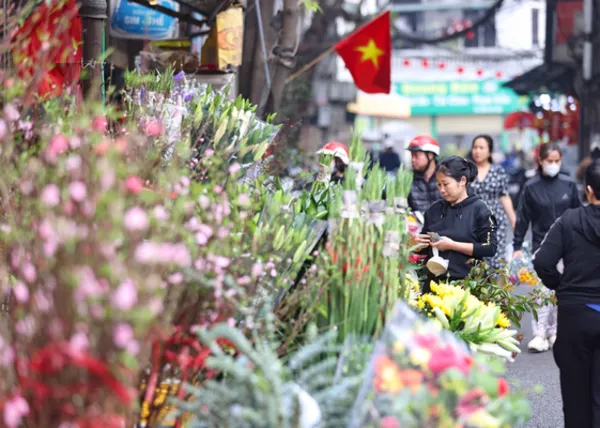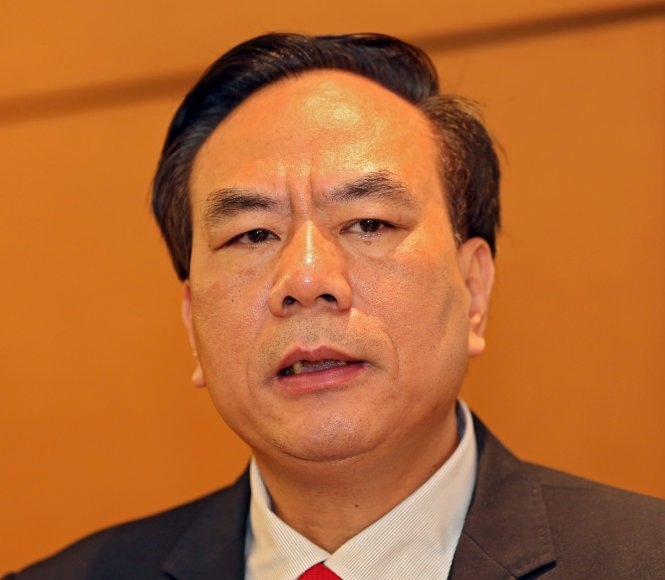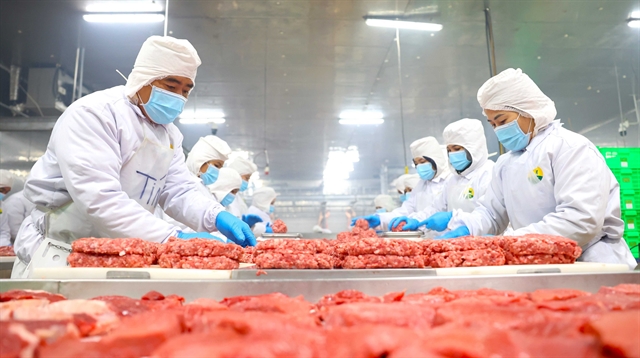.jfif) Opinion
Opinion

Bùi Đức Thụ, a member of the National Assembly Committee for Financial and Budgetary Affairs, told the newspaper Công Thương (Trade and Industry) that in 2016, Việt Nam would try to keep the inflation rate under 5 percent and reach a GDP growth rate of 6.7 per cent.
 |
Bùi Đức Thụ, a member of the National Assembly’s Committee for Financial and Budgetary Affairs, told the Công Thương (Trade and Industry) newspaper that in 2016, Việt Nam would try to keep the inflation rate under 5 per cent and reach a GDP growth rate of 6.7 per cent.
What is your assessment on the performance of our monetary policy in the 2011-15 period?
I should say in the past five years, there were quite a number of positive results recorded from our monetary policy. For example, an out of control inflation rate was brought down to a low inflation rate, which contributed to the stabilisation of our national economy while improving the people’s living conditions. In addition, the number of banks and credit organisations restructuring in the past five years has increased rapidly. The merging of weak banks into strong ones has resulted in improvements in the liquidity and credit ratings of Vietnamese banks. Consequently, the percentage of bad debt has been cut down to 2.55 per cent in late 2015 from 17 per cent in 2011.
What challenges is Việt Nam facing in its monetary policy in the next five years (2016-2020)?
The next five years is forecast to be a tough period with full of difficulties and challenges for Việt Nam. As a signatory to many international trade agreements, including the Trans-Pacific Partnership (TPP), our market will become more open. As a result, fierce competition is lying ahead for the Vietnamese economy.
We all know that when the national economy is not stable and faltering, it affects the quality of a nation’s credit. Vice versa, credit depends on the quality of the national economy and the borrowers’ capacity in using the credit in their businesses and their capacity to payback the loan principle and the interest.
More recently, Việt Nam has been successful in curbing the inflation rate. However, the possible return of high inflation still hangs over the economy. In the first quarter of 2016, our consumer price index (CPI) was low. A key factor leading to such a low CPI was the low price of crude oil. However, when the crude oil prices goes up, the CPI will also increase.
In our country the CPI in the first quarter jumped a bit high due to the increase in hospital and school fees. It is forecast that the CPI in the next quarters will also increase when the Government decides to increase electricity and water tariffs. It is certain that when a full market economy is applied, the price of many commodities will go up. So no doubt, the CPI will increase.
How do you envisage changes in the Government’s monetary policy?
Stabilising the national monetary policy and curbing the rate of inflation are big challenges for the Government and the banking sector. The world’s socio-economic conditions are unpredictable and fast changing, and the Vietnamese Government and the State Bank of Việt Nam will have to endure heavy pressures on their monetary management policy, including the current process of restructuring banks and improving banking competitiveness.
However, I’m confident that under the leadership of the newly appointed Governor of the State Bank of Việt Nam – the youngest governor ever in Việt Nam’s banking history – Việt Nam’s monetary policy will be flexible and dynamic in the domestic monetary market to make it tally with what is happening in the wider world. -- VNS




